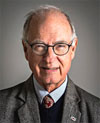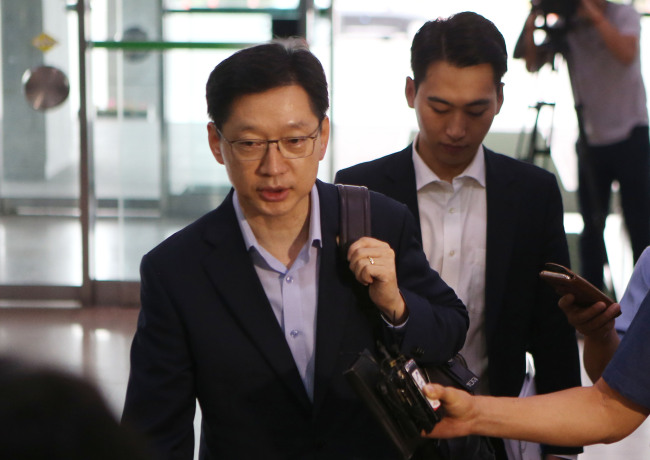Special to WorldTribune.com
 By Donald Kirk
By Donald Kirk
SEOUL — The ongoing scandal, in which the governor of South Gyeongsang Province, Kim Kyung-Soo — a top ally of President Moon Jae-In, was involved in a computer program that automatically generated millions of “likes” or “dislikes” for polls and postings on individuals and vital topics, may have been considerably more serious than routine bribery and vote-buying.
In fact, it crossed the threshold into the computer age. Kim was found guilty of complicity in the hitherto unknown practice of computer manipulation on a massive scale never heard of previously in a political campaign.

By accumulating all those tens of millions of likes, he and a power blogger known as Druking sought to generate the surge of popularity that led to the victory of Moon Jae-In in the “snap” presidential election nearly two years ago.
The implications are startling. From now on, since this scandal came to light, we have to expect that others will find ways to program computers and systems in order to rig not only public opinion polls but social sites such as facebook. Nor is it out of the question that the same computer whizzes who dream up these programs will also manage to skew the results of entire elections.
Related: Retired S. Korean generals slam Kim-Moon ‘fake peace’, ‘collapse of security’, Feb. 4, 2019
No doubt about it, Gov. Kim, by getting Druking to pile up all those phony “likes” on polling data and fake news, conspired to take corruption to another level. He and “Druking,” a name formed from the words “Druid” and “King,” were pioneers in a new-style corruption against which law enforcement authorities have to be ever more vigilant.
But will President Moon Jae-In want to crack down as hard on corruption when found to have penetrated the ranks of his avid allies, in this case the governor of an important base of power, as he was to pursue his predecessors in the Blue House?
Park Geun-Hye, impeached, jailed, convicted and ousted in the Candlelight Revolution that led to Moon’s election, and Lee Myung-Bak, who served an entire five-year term before her, both languish in prison, having been given extremely long sentences. [Park is believed to be totally innocent by her millions of conservative supporters who have been demonstrating weekly in the streets of Seoul.]
South Gyeongsang’s Gov. Kim, who retains his title through an appeals process that will go to the supreme court, received only two years while Kim Dong-Won, the real name for “Druking,” received three years and six months and eleven others got sentences from eight to eighteen months. Those sentences were light indeed compared with those given Park and Lee, who may die before their sentences are due to end.
More importantly, considering the nature of the crimes for which Gov. Kim and Druking were convicted, the question is whether others were also involved in their cases or similar ones. How deeply does this sort of crime, computer-rigging, vastly inflating data, penetrate the entire political system, and how easy will it be for other skillful computer experts to come up with similar programs for skewing the numbers in favor of particular candidates or issues?
Disturbingly, the case did not come to light until suspicions arose about all the “likes” that certain items of fake news were receiving. How could it be that postings that might not have been noticed much at all were suddenly generating such popularity? Only then, as Moon was cruising to overwhelming victory and reveling in his triumph in the presidential election, did investigators begin asking questions.
The trail soon led to the type of outcome that is all too familiar in Korean politics. Druking, it seems, was upset that Kim had failed to win an appointment of a lawyer friend as consul-general in Sendai, an important Japanese port and industrial city. As a provincial governor, Kim could not have arranged such an appointment on his own. It would be up to the foreign minister and, of course, Kim’s friend, Moon Jae-In.
Had Druking stuck with Kim, the outcome of both their cases might have been different. Other conspirators no doubt will be more clever.
As this case indicates, Moon faces corruption issues that may be considerably more serious than those of all the presidents before him. Revelations of corruption have plagued every Korea president, but this one carries implications for the structure of an entire system. Other bloggers, following the example of Druking, are sure to be looking into ways to inflate the numbers at the urging of high-ranking politicians.
Gov. Kim is just one of many successful politicians whom Moon has befriended over the years. Others may also be corrupt.
Having promised sweeping reform, Moon is not exempt from scandals on a scale previously unknown in Korean national politics. How he responds to charges against those around him will test the integrity of his presidency in the computer age.
